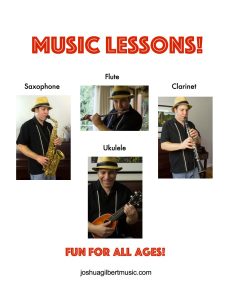Listening to the Words
When it comes to music, most people do not listen to the words. They listen to the music. They want the words to be there, and they usually want to understand them, but they don't really listen to them. That is, they listen to the sound of the words but not the meaning.
Lyric writing is a highly restrictive art form. Lyrics are not generally the focus of the song. They are meant to fit the melody. This requires most words to be one or two syllables. Many words don't sound good when sung. Most people still want songs to rhyme. The subject matter of songs is usually something about love. This is why most song lyrics are cliches.
Of course, great lyricists are able to work within these restrictions, and even flourish. In Johnny Mercer's lyrics to Lionel Hampton's Midnight Sun for example, he takes advantage of the long, flowing melody lines, using words that are rarely heard in songs: alabaster, universe, dwindle, crystalline. He rhymes chalice with palace with aurora borealis. By the time he busts out the 5 syllable word “miraculously” in the second verse he's clearly showing off.
It's folk music, of course, that the word lovers go to when they need their fix. Bob Dylan probably represents the apex of this in modern times, with many songs where the lyrics are the focus and the music something of an afterthought. In this he draws on a tradition of storytelling singers going back through the troubadours, all the way back to Homer and the griots of Africa, before the invention of writing. These traveling artists were living repositories of cultural knowledge, history, stories, and spirituality. Here we see that not listening to the words is actually a relatively new thing. For most of history, people listened to the words very closely indeed.
With the rise of electric music many lyrics became indecipherable. This led to a greater emphasis on sound over meaning. It also led to some paranoia. The Kingsmen were prosecuted for obscenity over Louie Louie, which the judge eventually ruled to be incomprehensible at any speed. Born again christians thought that songs contained satanic messages when played backwards, although why anyone would bother to do this was unclear.
It is really the rise of hip-hop that put lyrics at the center again, although now it's the rhythmic qualities of the words and not the melodic qualities take precedence over the meaning. The words go by at a dizzying pace, rhyme still reigns supreme, and it's unclear how much meaning the average listener is actually taking in. Still, this kind of lyric writing does find it's place in the ancient tradition of storytelling through song.
Some artists have played creatively with our tendency to tune-out the meaning of lyrics. The Talking Heads song I Zimbra is written in a completely made-up language. Early REM songs are intentionally mumbled. Then you get to the endpoint of this approach: wordless vocals, like: “The night they drove old dixie down all the people were singing, they went na na na na na na” etc. Why were they singing this? It's a mystery! Wordless vocals stick in the mind, and anyone can sing them. Because they are devoid of meaning, they become universal.
We see here that song lyrics actually raise a lot of questions about the nature of language, communication, and meaning. How much does the sound of words contribute to their meaning? Does music help or hinder oral communication? What is the emotional component of language and how does music enhance it's expression?
When we listen to songs in other languages, all we here is the sound of the human voice and the sound of the words they are singing. They could be singing about anything. It's probably a love song, really. Freed from the need to understand the words, the mind is able to focus on the melody, the rhythm, the sound of the instruments. Still, I find that sometimes it's good to do more. Good lyrics can tell a story, paint a picture, lift your spirits, or break your heart. Of course I would think that. I'm one of those people who listens to the words.
Cross posted to The Little Big Band blog.

